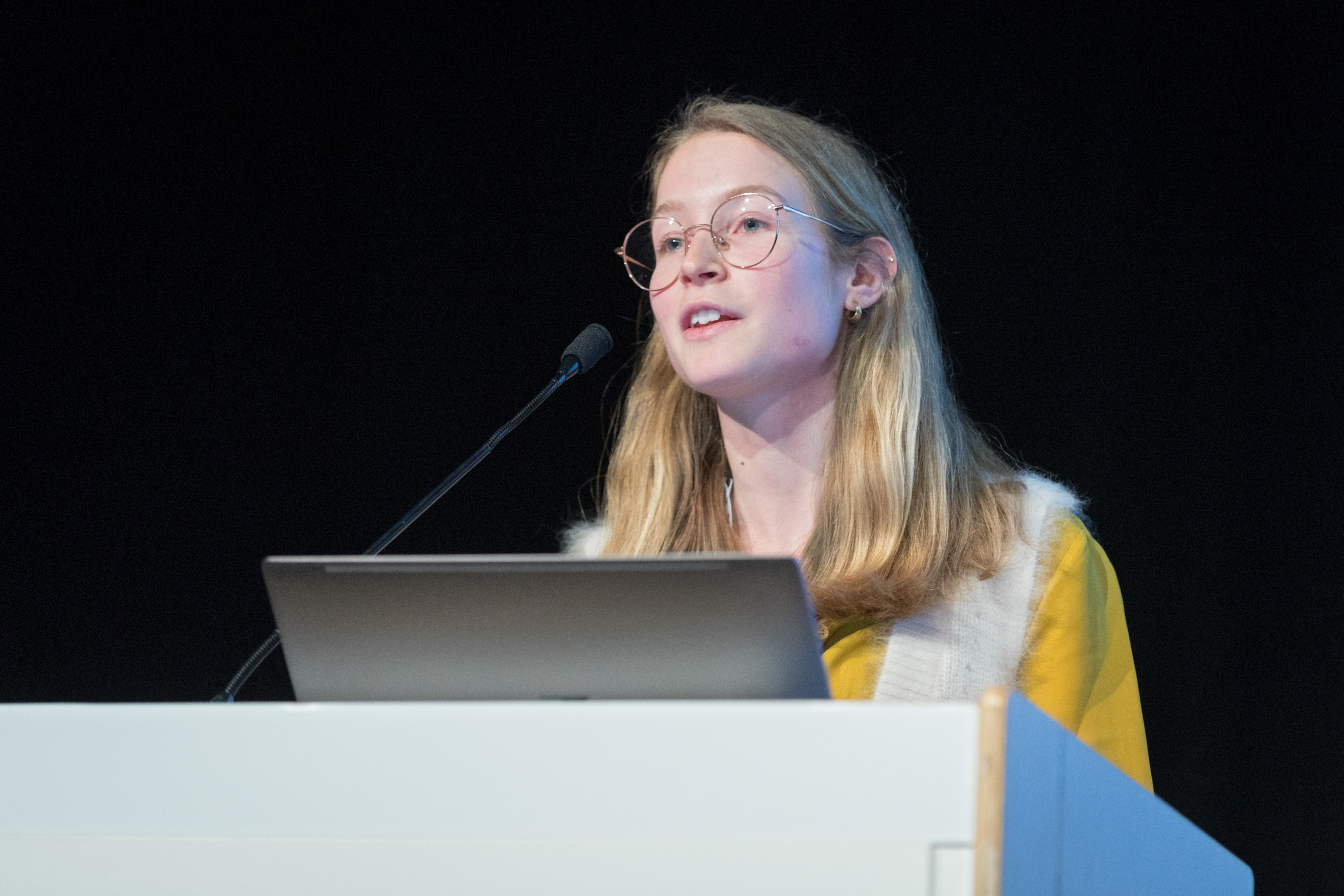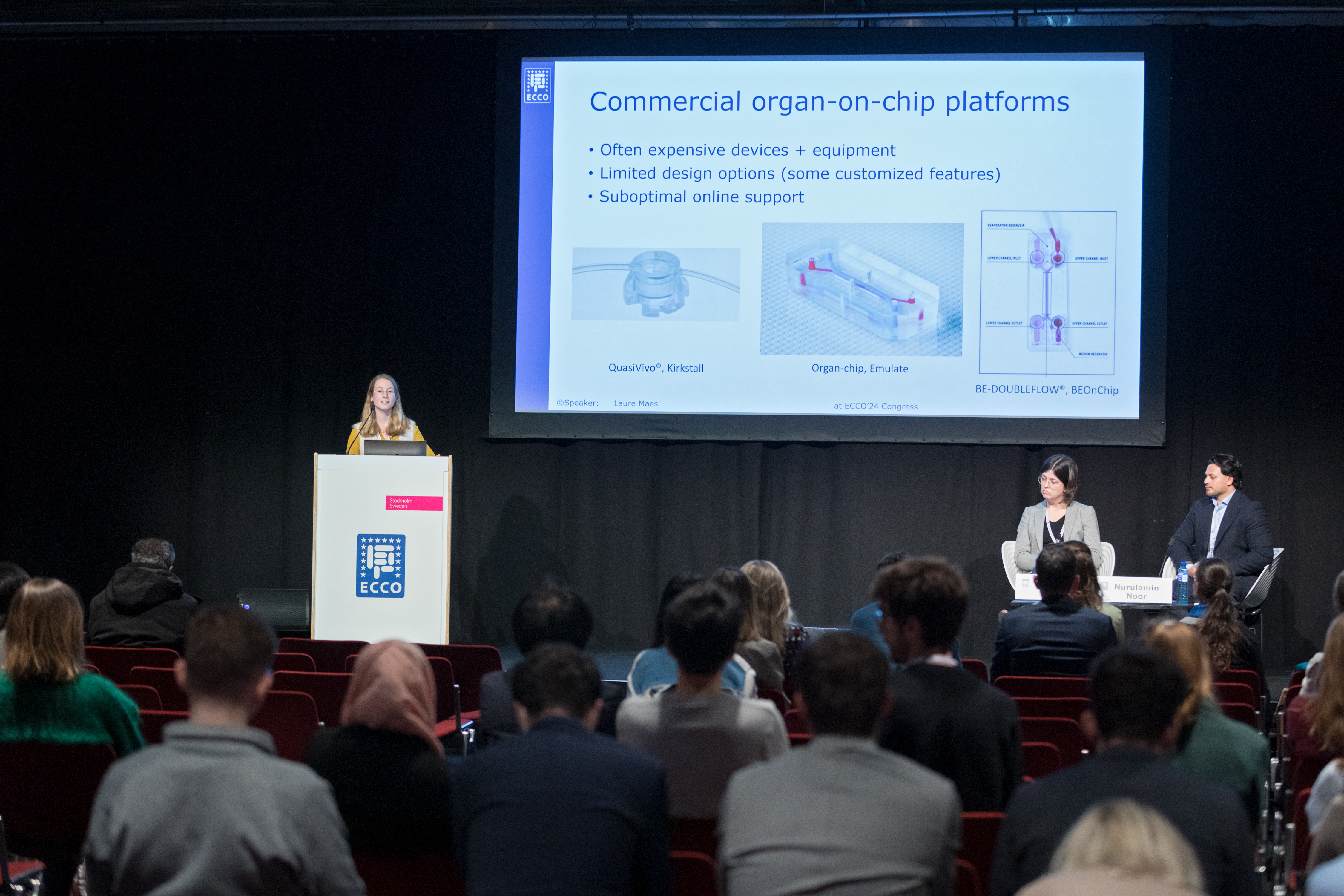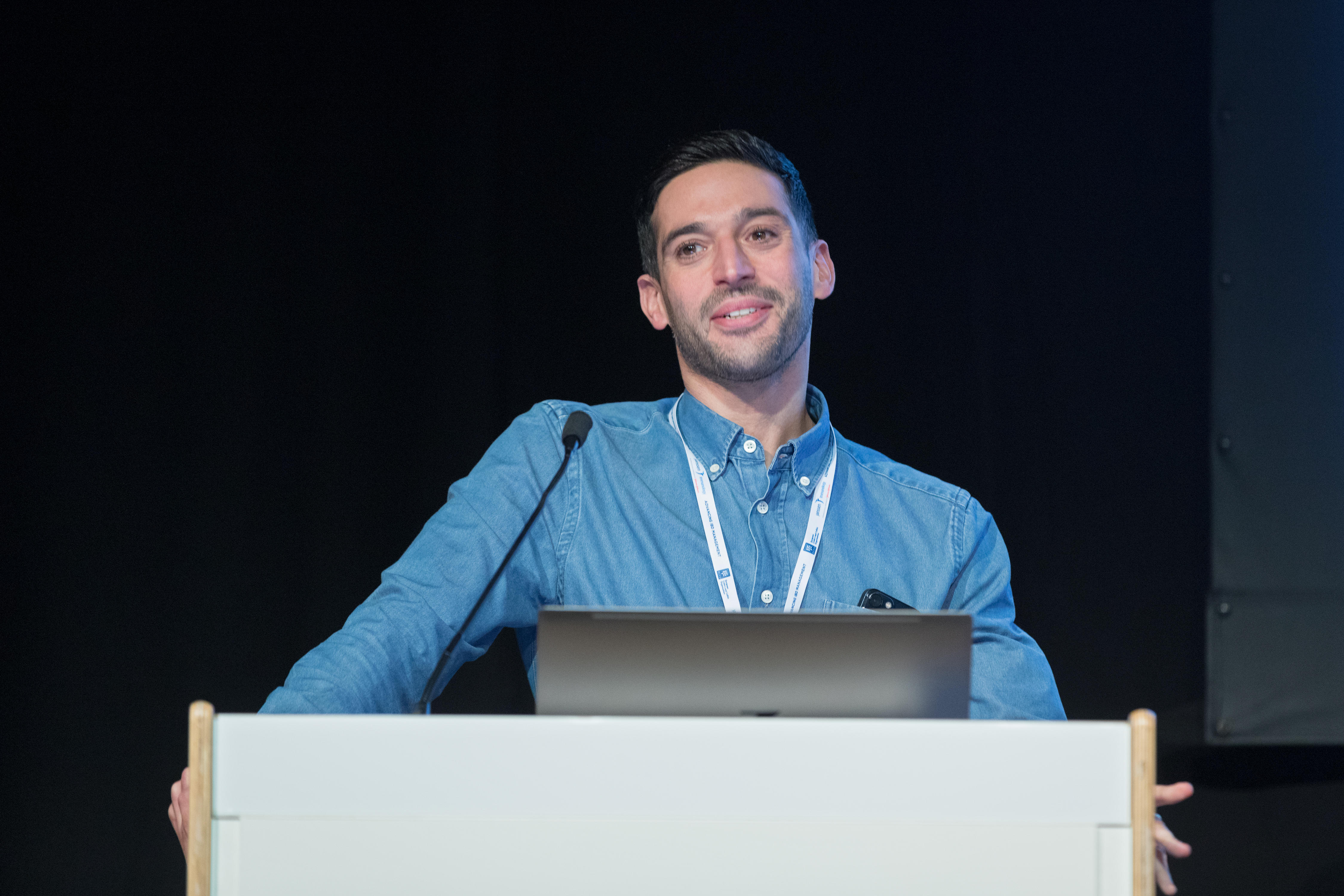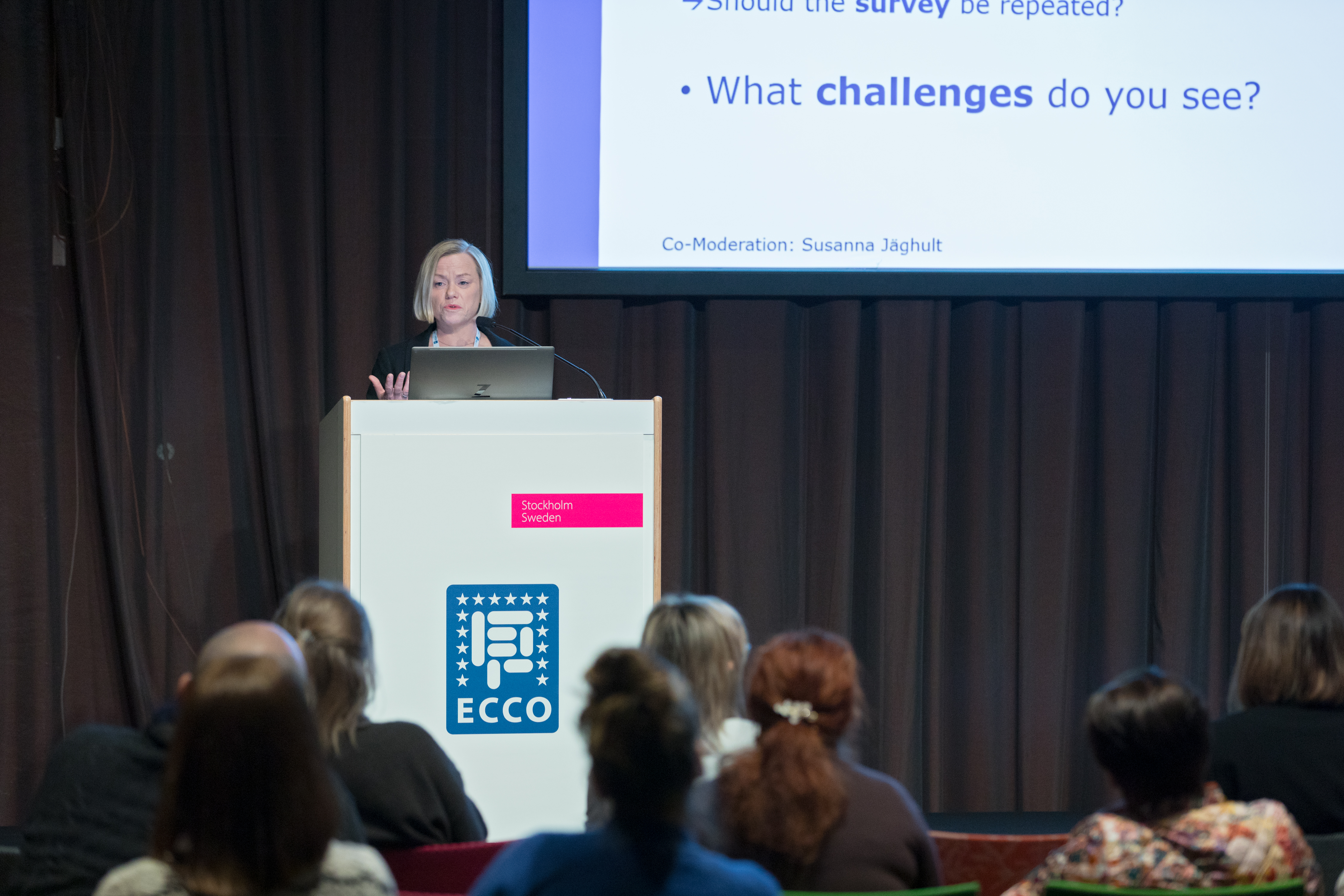Report on the 10th Y-ECCO Science Workshop
Gabriele Dragoni and Virginia Solitano, Y-ECCO Committee Members
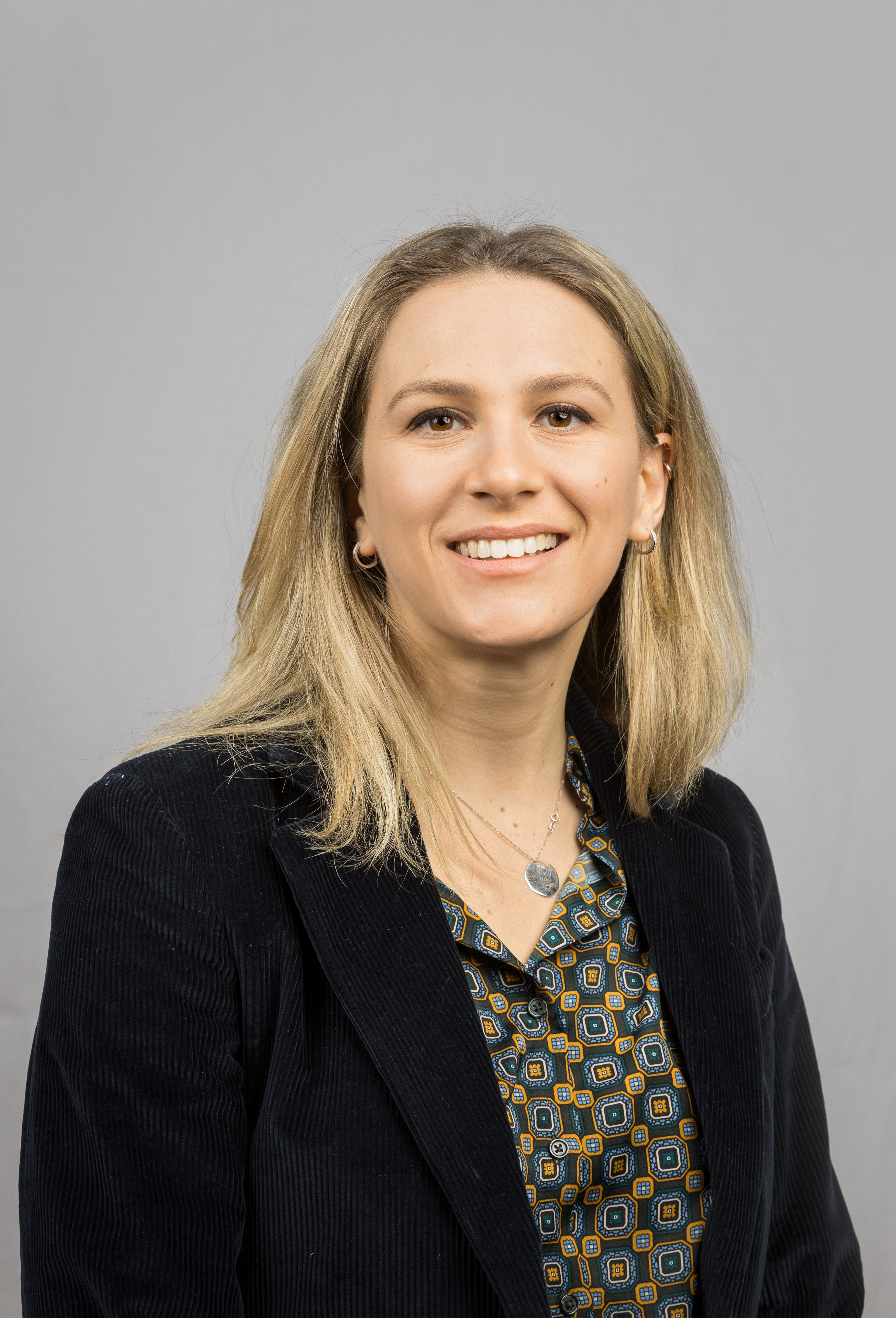 Virginia Solitano © ECCO |
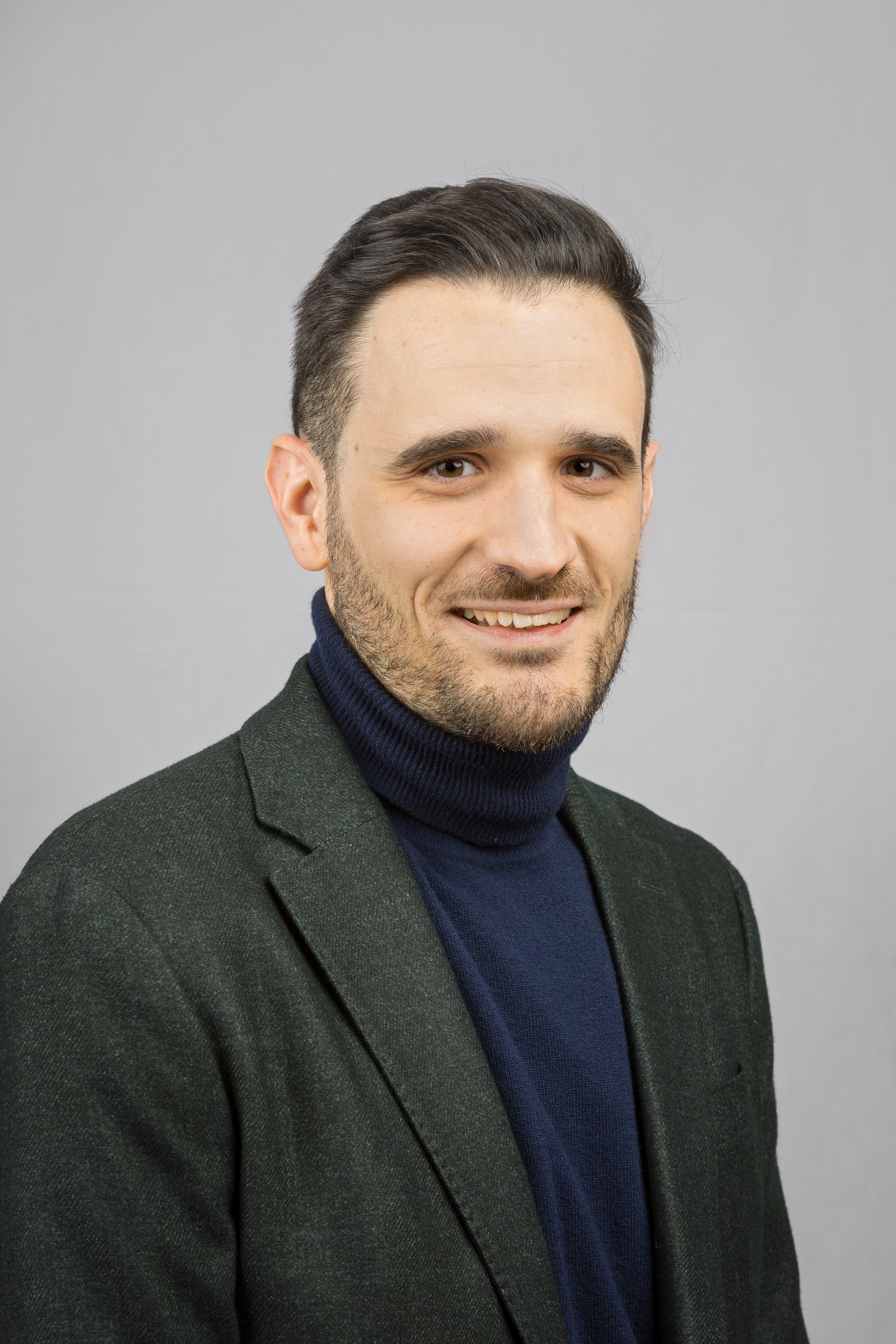 Gabriele Dragoni © ECCO |
The Y-ECCO Science Workshop celebrated its 10th edition during the recent ECCO Congress in Stockholm. Held on February 21, 2024, the workshop invited young basic scientists to present and discuss their research with peers and senior opinion leaders. This year’s edition proved a tremendous success, inspiring Y-ECCO Members with a friendly yet intellectually stimulating atmosphere and encouraging them to broaden their knowledge and to prepare for more challenging research steps.
The theme of the 10th Y-ECCO Basic Science Workshop was "Thinking outside the gut", emphasising the gut's significance within a multi-organ system. By exploring connections between various organs, the workshop aimed to delve into the intricate interplay defining the complex relationship between the gut and other systems such as the joints, liver and brain.
The outgoing Y-ECCO Chair, Mark Samaan (UK), welcomed participants warmly, introducing the workshop. Session 1, “Learning from other inflammatory disease”, was chaired by Robin Dart (UK) and Dirk Elewaut (Belgium). In his inspiring talk, Dirk reminded us of the first observations of microscopic bowel inflammation in patients with spondylarthritis back in 1995 and presented the most recent evidence on the critical role of γδ-T cells in mucosal homeostasis and the challenges of treating joint inflammation due to TNF/T-reg independence.
Three abstract presentations followed. Firstly, Zhingang Liu (UK) reported the findings concerning gut-host metabolites and microbiota interaction in checkpoint inhibitor-induced colitis, highlighting the role of increased expression of Scd1 and Mif genes and Bacteroidaceae in this model. The second abstract presentation, by Ivan Fung (The Netherlands), showed interesting results on the role of mucosal Ig-G-like naïve B-cell expansion and maturation that might contribute to the pathogenesis of Ulcerative Colitis (UC). Naïve B-cell abundance was found to be significantly higher in inflamed compared to non-inflamed UC and introducing naïve B-cells in SCID mice increased mucosal disruption, thus aggravating disease severity. Then, Luise Linzmeier (Switzerland) presented a promising study on PTPN23 deletion in macrophages, which seems to be a protective factor against DSS-induced acute and chronic colitis.
After a brief coffee break, the workshop resumed with session 2, entitled “Learning from Hepatology”, with the new Y-ECCO Member Manuela Estevinho (Portugal) and Johannes Hov (Norway) as co-chairs. Johannes gave a talk on the role of microbiota in primary sclerosing cholangitis, focusing on the importance of alterations in gut microbial composition and function that, interestingly, do not improve after liver transplantation. In the era of precision medicine, he also stressed the altered function of low vitamin B6, which may influence disease course and become clinically relevant as biomarkers and treatment targets.
Opening the second session of abstracts, Elisa Melón-Ardanaz (Spain) presented her project on the differential effects of tofacitinib on macrophage activation. Using single-cell RNA sequencing (scRNA-seq), this research identified the relevant cellular subsets and genes involved in response and/or resistance to tofacitinib. Interestingly, scRNA-seq analysis demonstrated partial recovery of the epithelium and decreases in plasma cells, inflammatory fibroblasts and neutrophils in tofacitinib responders. In contrast, in non-responders tofacitinib did not drive epithelial repair or significant remodeling of the stromal compartment; instead, ongoing inflammation induced a small but significant increase in the proportions of neutrophils and inflammatory fibroblasts.
Sare Verstockt (Belgium) gave an outstanding presentation on the role of lipidome of creeping fat in Crohn’s Disease (CD). She presented the results of a pilot lipidomics study in which the creeping fat was compared with paired unaffected mesenteric tissue. While no significant alterations in storage or membrane lipids were noted in the creeping fat, there was a noticeable decline in anti-inflammatory and anti-fibrotic lipid species. Conversely, there was an elevation in a pro-inflammatory lipid species, indicating an unfavourable microenvironment within the creeping fat.
Moritz Meyer (Austria) highlighted the central role of Paneth cell retinoid X receptor alpha (RXRα) in metabolic gut inflammation. He discussed how the transcription factor activity of RXRα is induced in the inflamed small intestinal mucosa of CD patients, correlating with IL-8 expression. Additionally, he pointed out that RXRα can sense polyunsaturated fatty acids (PUFAs) in the gut epithelium, translating an excess of PUFAs from a Western diet into IL-8 dependent enteritis. This suggests that inhibition of RXRα activity or implementation of dietary PUFA restriction may have therapeutic potential in small bowel CD.
The final, third session, entitled “Learning from experience: translational science”, was co-chaired by Nuru Noor (UK) and Azucena Salas (Spain). Azucena discussed the advantages of applying single-cell transcriptomics to understand disease mechanism and treatment response. Of note, scRNA-seq allows us to zoom into the cellular composition and phenotypes in complex tissues such as the intestinal mucosa. This approach has revealed unexpected macrophage, fibroblast and neutrophil heterogeneity, and integration of scRNA-seq with tissue spatial transcriptomics has the potential to unravel further heterogeneity in cellular composition and to uncover cell-to-cell interactions. The importance of scRNA-seq relies also on the potential to unravel the mechanisms underlying the lack of drug response, as described by Elisa Melón-Ardanaz in her above-mentioned tofacitinib study.
Sofía Frigerio (The Netherlands) presented initial findings from her research, which seeks to unravel the composition and characteristics of intra- and peritumoral immune cells in human IBD-associated dysplasia and cancer by using innovative spatial profiling techniques. Interestingly, non-inflamed epithelium in colitis-associated dysplasia (CAD)/cancer (CAC) models showed reduced levels of intraepithelial lymphocytes, granzyme A and B and IL-15, suggesting potential insights into the immune landscape surrounding CAD/CAC.
The concluding presentation in the session, by Laure Maes (Belgium), focused on the establishment of a multi-organ microphysiological system to advance gut–brain communication research. She illustrated the advantages and disadvantages of organ-on-chip technology, which is a platform with microscale channels in which cells are cultured and experience mechanical stimulation.
Following a concluding discussion, Mark Samaan delivered closing remarks, anticipating next year's programme planning by the entire Y-ECCO Committee. The committee, now under the leadership of Bram Verstockt (Chair), welcomes two new members, Manuela Estevinho and Virginia Solitano, and looks forward to replicating engaging interactions among diverse international experts and enthusiastic young researchers. You are warmly invited to participate in the upcoming Y-ECCO Science Workshop scheduled for next year in Berlin!
Pictures are subject to copyright © ECCO
